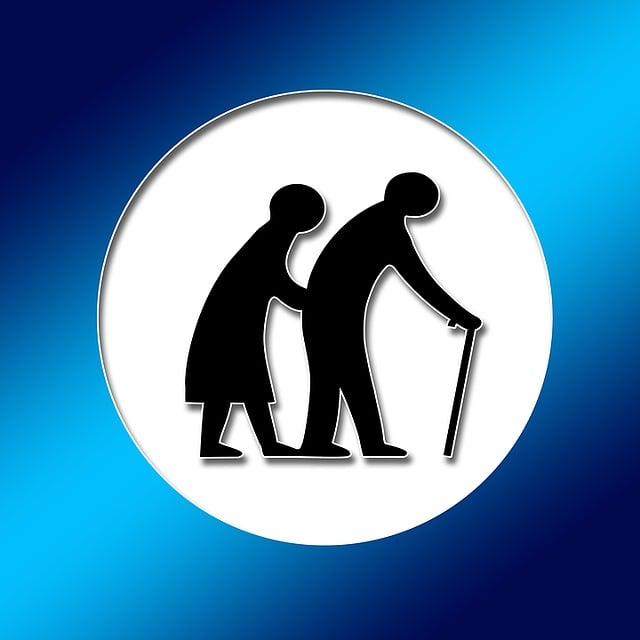Alzheimer's Disease, affecting primarily those over 65, causes memory loss and cognitive decline, hindering daily life. Elderly Companion Services offer crucial support, maintaining quality of life and independence through personalized care. Trained companions assist with tasks, provide emotional support, and use techniques like active listening and music therapy to engage patients cognitively and socially, enhancing their dignity during this challenging phase.
In the face of Alzheimer’s Disease, a compassionate approach to care is paramount. This article explores the profound impact of this degenerative condition on the elderly and highlights the invaluable role played by Elderly Companion Services in providing holistic support. We delve into practical strategies for companions to offer empathy and understanding, ensuring quality of life for patients navigating this challenging journey. By fostering meaningful connections, these services revolutionize Alzheimer’s care, offering not just assistance but genuine compassion.
- Understanding Alzheimer's Disease and Its Impact on the Elderly
- The Role of Elderly Companion Services in Providing Compassion Care
- Strategies for Companions to Offer Empathy and Support to Patients with Alzheimer's
Understanding Alzheimer's Disease and Its Impact on the Elderly

Alzheimer’s Disease is a progressive neurologic disorder that primarily affects older adults, with symptoms typically emerging after the age of 65. It’s characterized by memory loss and cognitive decline, gradually impairing an individual’s ability to perform daily tasks and maintain independence. As the disease progresses, it can also impact personality, behavior, and communication skills. The exact causes of Alzheimer’s are not fully understood, though genetic, environmental, and lifestyle factors are believed to play a role.
The impact of this disease on the elderly is profound. Caregivers often face challenges in providing the necessary support due to the complex nature of the disorder. This is where Elderly Companion Services step in as a vital resource. These services offer specialized care tailored to individuals with Alzheimer’s, focusing on maintaining their quality of life and fostering a sense of dignity and comfort. They provide companionship, assistance with daily activities, medication management, and monitoring, ensuring seniors receive the personalized attention they need during this challenging phase.
The Role of Elderly Companion Services in Providing Compassion Care

Elderly Companion Services play a vital role in providing compassion care for individuals with Alzheimer’s disease. These services offer a unique approach to supporting seniors, focusing on maintaining their independence and enhancing their overall well-being. Trained companions spend quality time with clients, assisting with daily tasks like meal preparation, personal hygiene, and medication management while also engaging in meaningful activities and conversations that promote cognitive stimulation.
By connecting elderly individuals with Alzheimer’s to compassionate companions, these services foster a sense of companionship and security. Companions not only provide practical assistance but also offer emotional support, listening to their clients’ concerns, sharing stories, and creating a warm and nurturing environment. This personalized care can significantly improve the quality of life for those with Alzheimer’s, ensuring they receive the attention and affection they deserve during this challenging phase.
Strategies for Companions to Offer Empathy and Support to Patients with Alzheimer's

When supporting a loved one with Alzheimer’s, companionship is invaluable. Companions play a pivotal role in providing emotional support and maintaining the patient’s sense of dignity. Effective strategies include active listening, where companions encourage the individual to express their thoughts and feelings without judgment. Non-verbal cues like gentle touch, calm demeanor, and empathetic facial expressions can convey understanding and comfort, especially during moments of confusion or distress.
Elderly Companion Services offer a dedicated approach, training caregivers in specific techniques tailored to Alzheimer’s care. This includes memory aid strategies, such as using familiar objects, routines, and music to stimulate positive memories and orient the patient. Companions can also foster engagement through simple activities like walking, listening to music, or sharing stories, creating opportunities for social interaction and cognitive stimulation.
Compassion care is a vital aspect of managing Alzheimer’s Disease, and elderly companion services play a key role in providing this support. By understanding the disease and implementing empathetic strategies, companions can significantly enhance the quality of life for patients. The role of these services ensures that those affected by Alzheimer’s receive personalized attention, fostering a caring environment that respects their dignity. Through empathy, patience, and tailored care, elderly companion services revolutionize Alzheimer’s care, offering a supportive hand to both patients and their families.
